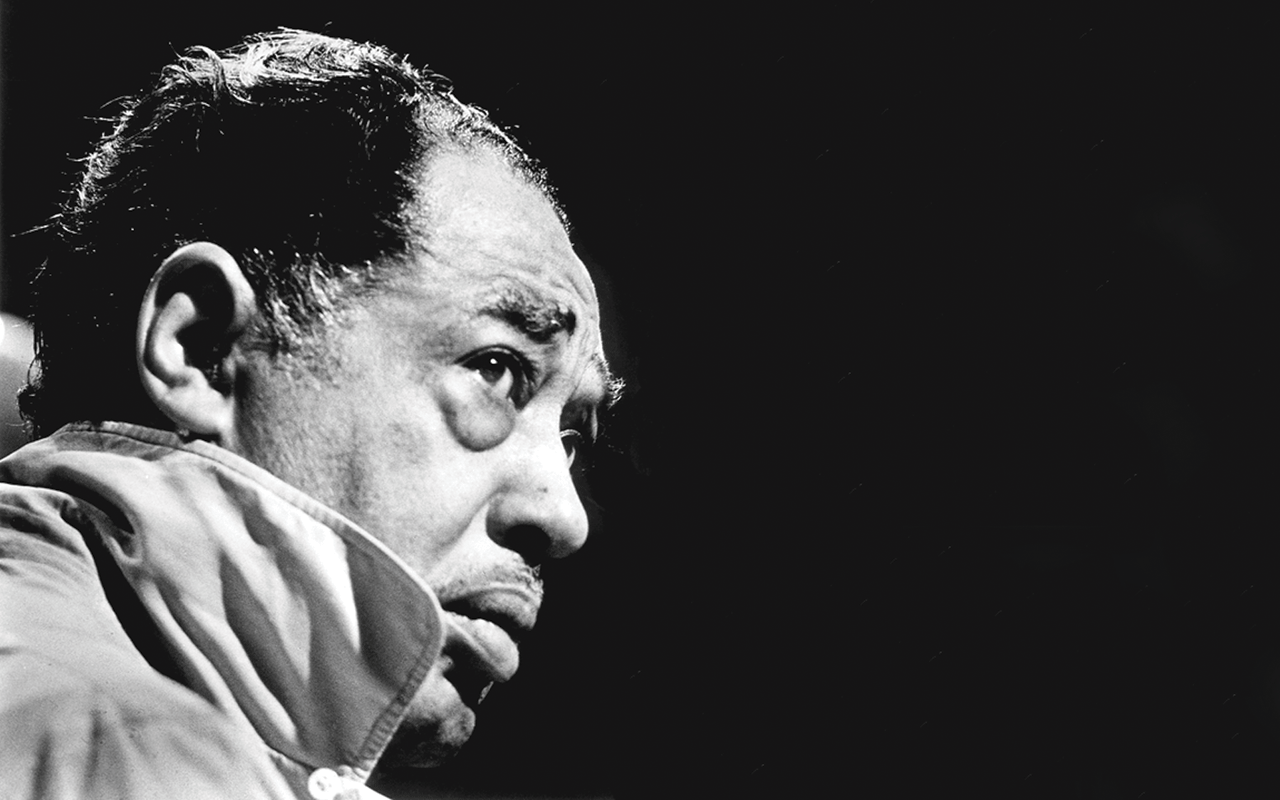
Saturday, December 17, 7:30pm
Town Hall Seattle (1119 8th Ave)
$14-40
Buy Tickets
For the casual or newcomer jazz listener, the name Duke Ellington evokes images of fancy nightclubs, cocktail glasses clinking, the croon of a sexy singer and his signature swinging big band, composed of excellent musicians performing something along the lines of “It Don’t Mean a Thing (If It Ain’t Got That Swing).” The master Ellington (1899 to 1974), an early originator of the jazz big band and composer of 2,000 songs, took his band to excited audiences in all parts of the world, accomplishing 20,000 concerts in his 50 years as a music professional and introducing many jazz talents to the public.
But Duke Ellington also is known for his sacred music compositions. Deeply spiritual and decidedly nondenominational, his Sacred Concerts are intended to be performed in places of sanctuary, according to longtime Seattle jazz educator/musician, Clarence Acox.
This year’s production of Duke Ellington’s Sacred Concert will be held at 7:30pm, Saturday, December 17, at Town Hall. The full Seattle Repertory Jazz Orchestra (SRJO), with 17 instrumentalists, and the 20-voice choir of Northwest Chamber Chorus will be embellished by two masterful soloists, Nichol Veneé Eskridge and Dr. Stephen Newby, as well as the exciting moves of finale tap dancer Alex Dugdale.
Acox, and SRJO co-director Michael Brockman, have taken part in the all-star annual concerts since 1988, initially as part of the Roadside Attraction big band. The role of producer, lovingly begun by Lara Morrison with support from the Interfaith Council of Seattle, was formally handed off to Earshot Jazz in 1993, keeping the chain unbroken for 28 years – so far. Acox refers to validation by The Duke Ellington Society in New York that, although concerts of this music are sporadically performed all over the world, Seattle’s jazz-rich community supports the singular, and longest running, annual Sacred Concert tradition.
The first composition and performance of the Sacred Concert was held at Grace Cathedral in San Francisco in 1965. The second was performed at Cathedral of St. John the Divine in New York City in 1968. The last concert, performed shortly before Ellington passed away of illness, was held at Westminster Abbey in London in 1973. The Seattle annual performance combines portions of all three of the Sacred Concerts.
Brockman, music professor at the University of Washington, is recognized as an Ellington scholar for his study, transcription, production and performance of this jazz master’s music. As a graduate student at the New England Conservatory of Music, Brockman and others transcribed the Sacred Concerts from the original recordings, and later augmented the fragmentary existing score left by Ellington. He says the early films and recordings, made with rudimentary equipment in large, high-ceilinged churches, are difficult to hear with clarity, “but of course the musicians were outstanding.” Brockman feels that SRJO’s CD recording of this music, performed in Seattle between 2001 and 2005, and featuring renowned singer Dee Daniels, remains the best recorded version of the repertoire.
Fifty-one years since the first Sacred Concert, what is the significance of this art work to the Seattle region, and beyond?
“It’s the most beautiful music that Ellington wrote,” Acox asserts. “It’s so spiritual and gorgeously arranged and it meant so much to Ellington.”
He adds that the composer insisted that the work should be performed in a sacred, but nondenominational, setting. Beyond that, Acox, who is also the director of Garfield High School’s award-winning jazz band, says this work is meaningful for the Black community because of its reflection of the dignity, talent, and sophistication of Ellington, but also due to the incorporation of gospel overtones, work songs and the tap dance sequence.
“It’s ecumenical and also universal,” Brockman adds. “It was significant when it was first performed in a turbulent political time in San Francisco, and it is significant here and now.”
–Mayumi Tsutakawa